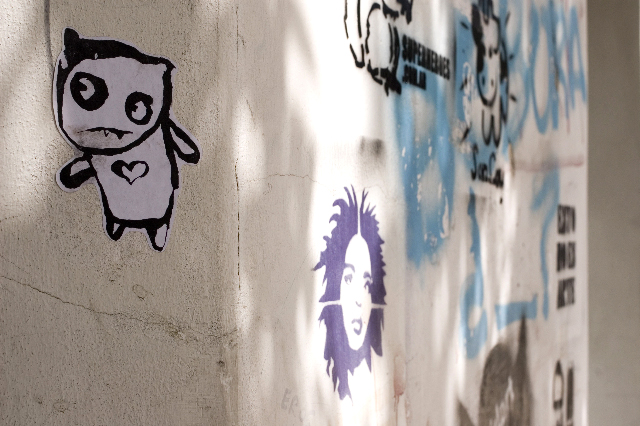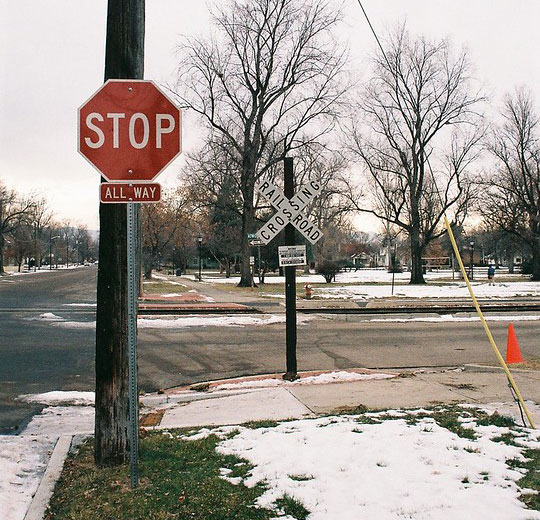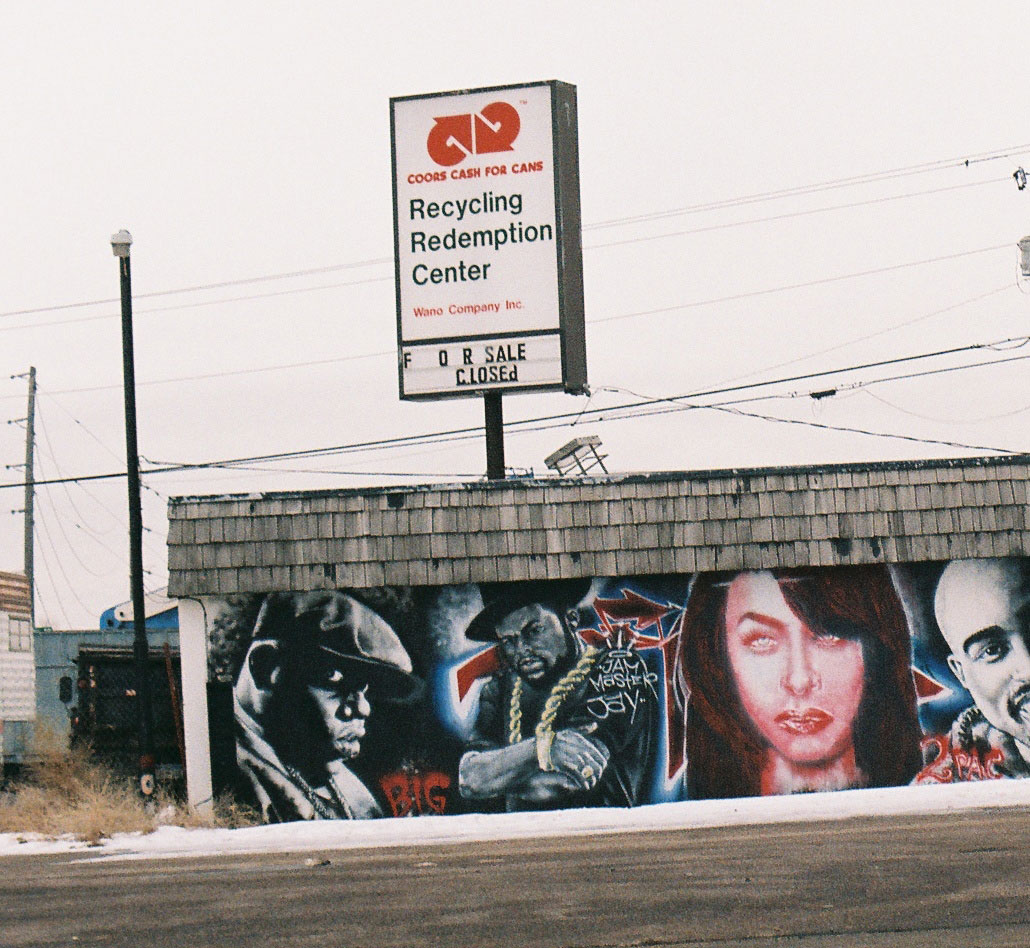Why I don’t (usually) tell people when I’m not okay
by Katy Elphinstone, July 2023

I figure it’s generally best not to tell people when I’m not okay.
In my mind and in my experience, if I tell anyone about what’s really happening for me (if it isn’t positive, that is) I’m going to end up worse off than before doing so. I’ll be feeling more overwhelmed that I was before. And feeling worse about myself.
Am I alone in this? Well, I've asked around, and it turns out I'm not. In fact, it seems almost everyone avoids telling others when they're struggling.
So… why is this?
When I’m anxious, or unhappy, I’m quite overwhelmed as well. Emotionally, mentally, and physically. I’m not thinking in a linear way. I’m jittery and nervous, jumpy – and prone to starting to cry or losing my temper (or both) on almost no provocation. That’s the situation.
Adding to the burden
Putting any more onto me when I’m in this state isn’t a great idea – whether it’s expectations, requests, or… well, anything! It’ll just increase the weight on this camel’s back (so to speak) – and might bring the poor camel right up to its back-breaking point. And that’s not going to look pretty.
Not worth the risk. Best stay quiet, (I think to myself).
How does this work?
I’ll try and list some of the ways we may increase people’s burdens when they’re upset, anxious, or not coping. Basically, brutal as it sounds, while being convinced we are giving, what we’re actually doing – distressingly often – is taking.
Things we expect people to give to us if they've told us they're not okay
Reassurance
This may consist in us showing lots of concern and worry about them, and (in effect) acting like the world is ending – pushing the not-okay person into the position of reassuring us not to worry, and that it really isn’t that bad, and that they’re ‘fine’.
Another way of achieving this is to tell the person to perk up, and that things aren’t that bad.Characterized by phrases like, “You’ll feel better if you smi-ile” or, “But you’ve got so much!” Or explaining that lots of other people have it much harder. Which pushes the not-okay person into feeling they were overreacting, and retracting their not-okayness – while feeling really bad about themselves, and like there must be something (even more) wrong with them.
In either of these scenarios, we aren’t giving reassurance. We’re seeking it! And usually, getting it (at the expense of the person who already wasn’t okay to begin with).Note: we often do this to people whose vulnerability we can’t deal with. To give ourselves some compassion too, perhaps we're pushing their perceived weakness away simply because we feel we really need them to be strong.
Explanations
We might ask things like, “What’s happened?” or, “Oh no, what’s wrong?” Or other searching questions about why they should be feeling this way.
But, here’s the thing – people who are distressed usually can’t answer those sorts of questions. They’re too… well, distressed!
The other problem is that often, when we ask questions like this, we’re usually not after the truth. Not the real truth. Even if we think we are. What we really want are answers that we think are reasonable, and we especially like ones with clear-cut solutions. We don’t really want answers that make us feel a) helpless, and/or b) responsible. Indeed (usually entirely unawares, and often very subtly) we generally won’t accept those sorts of answers at all, were they to be offered.
The thing is, being interrogated about why you’re feeling and acting the way you are, when you’re upset (and especially when you sense the person is not really after a truthful answer, but rather, one they can handle) can be pretty stressful – and exhausting and demoralizing, too.
Apologies
Without really being aware of it, we may make it so clear to the not-okay person that it's, well, not okay to be not-okay (either by acting annoyed, or angry, or just giving off a rather 'put out' sort of air – making it clear the whole thing is quite inconvenient for us), that they may start apologising to us – or, at the very least, acting quite small and apologetic.
Yes, we've managed to give off such a strong message to the not-okay person that they're being selfish and self-indulgent by mentioning such a thing, that we've probably effectively deterred any future not-okayness in them (at least, not any that they're going to tell us about).
Instant solutions
We may try offering fixes, which we ask the not-okay person to either agree to or elaborate on. If they don’t seem happy to take up our first fix-suggestion, we can keep going with listing other potential fixes – maybe showing exasperation when they don’t react with appropriate enthusiasm to any of them.
To be fair to us, we are genuinely trying to help.
But here’s the thing – offering ‘fixes’ is a form of gaslighting. It strongly implies, “If you just did this, or this, or this… you’d be fine.”Only that, were it that simple, the person's own brain would have already informed them of (at least one or two of) these courses of action, before things became this dire. Indeed, how are we to know that the not-okay person has not already tried all the fixes we’re suggesting, to no effect? Or – if we tend to start our sentences with 'have you tried' – how are we to know whether the person has physical access, or emotional recourse, to any of the fixes we're suggesting?
Quite apart from all this, though, the most important factor here is that not-okay people are feeling drained, exhausted, and chaotic. Right now, they are in no condition to ‘pick themselves up’. They need compassion or practical help – or both. Not lecturing, and especially not of a kind that makes them feel even more hopeless and guilty.
Just a note to add here: if people do want solutions and advice (and they sometimes do!), there’s usually a clue. For example, they may start the sentence with, “I’d like your advice about something,” or similar. Look out for that. And if it’s not there, it's generally best to sit on our fixes – however tempted we are to offer them up.
Freedom from responsiblity
We may say to the not-okay person in an earnest tone, "Do let me know if there's anything I can do to help."
It feels a challenge to explain why this response isn't anywhere near as helpful as it sounds. But I'll do my best.
First, a quick reminder that the person needing help is depleted and exhausted just now. You've just asked them to analyse, think, reason, make a list, and then present the list to you. Easy-peasy, right?
A bit of background: In our society, we're conditioned not to be demanding on our own behalf (our own, not our ego's). Most of us don't even know what our needs are, let alone how to get them met. On one or two occasions we may have managed, against the odds, to complete the first two steps: 1. knowing what our needs are, and, 2. taking steps to ensure they're met. Perhaps steps such as speaking our thoughts, or having boundaries. And those occasions are when the trouble really begins. See my article on socially acceptable ways to shut people down. Plus, in an inherently competitive society, needing help makes you very vulnerable. You may be seen as weak and powerless – even by yourself. You may feel beholden (like a supplicant, even a beggar!) and the burden of how you will ever repay people, and the accompanying shame, becomes heavy on your shoulders.
In such a context, the person we've asked to 'tell us whenever they need help' is probably not going to be able to. If they really want to trust us, and therefore make the decision to answer yes, they need help, this is already a huge leap. A further leap is if they answer with a 'yes' to their internal question, "Did that person actually mean it, when they asked me to tell them what I need help with? Are they going to actually help me, if I ask?" And the final step in this exhausting sequence is to single-handedly figure out what the person offering might be able – logically and logistically – to help with.
Gosh, here we are – a couple of major hurdles later. What's next? Articulating the request. Deep breath. Plunge. And this is where, sadly, we're all quite likely to fall flat on our faces. The reaction they get. It's almost a comedy. Truth is, we're not used to people directly telling us what they need. It's actually – rather offensive. Ew.
If we are very decent well-meaning people, however, we'll do our best to hide how disconcerted we are, and will help out – perhaps just making a note to be slightly more reserved with that person, in future. We can always mitigate the effects by helping out only in the ways we prefer, rather that in the ways they've been so forward as to ask for.
Tip: If we genuinely want the outcome to be us helping someone out rather than them going away and fending for themselves, it may be better to intuit and observe. If in doubt, we might ask gentle, tentative, 'small' and sequential questions, about what things may help them most. We could also simply go ahead and try things, being flexible, tolerant, and prepared to change tack if we see those things aren't quite right. In these ways, we can also limit ourselves to only offering and doing things that are within our capacity.
Physical affection
For example, hugs and closeness. I think, especially when it comes to neurodivergent people, it’s not clear to the ‘hugger’ that at times it's not so much about giving to the not-okay person, but actually taking from them.
Because quite often, it's actually the 'hugger' who mostly wants to feel reassured – by the contact, and by the feeling they’re doing something.
A little ‘cherry on the cake’ here is if the person who’s seeking physical closeness then acts hurt and offended (or even just innocently puzzled) when the not-okay person backs away from them, thereby adding a nice dollop of guilt and shame into the mix.
Rule of thumb: when offering physical closeness to someone who is not-okay, first make absolutely sure they want it.
Recognition and identification
We may say, “I know what that feels like,” or, “Oh yes, I know exactly how you feel, I get this too.”
It’s not that this is a wrong phrase or sentiment per se, but all-too-often it’s glib and done ‘for effect’ rather than with much deeper truth – basically, we’re flailing about, rather cluelessly trying to offer comfort to another human who’s distressed.
The thing is, we actually don’t know how they feel, nor what it’s like being them. Only they know that.
This is a moment to be humble, not presumptuous.
Note: sorry to be confusing here, but there are some situations, occasionally, where you really have been in difficulties very similar to theirs – and you identify in a truly heartfelt way – where this practice can be helpful. I’d just say to tread with extreme caution when you do this, observing their reaction all the time, and starting cautiously with lines like, “It’s probably not quite the same… But this happened to me once, where I experienced/felt… and it’s reminding me a bit…”. Stop talking immediately if you see them looking (even more) upset or angry.
Empathy – and a ‘woe trophy’
Sometimes we may get this irresistible urge to tell the person in difficulty about our own troubles when they tell us about theirs. It’s almost like we want to match them in woe (are we feeling a little competitive, perhaps)?
An example would if someone says, “I have a sore back” the other person replies, “Oh goodness, yes, my back’s been sore for two weeks, I’ve been taking painkillers every day for it.”
I think I don’t really need to explain why this practice is less than helpful to the not-okay person.
Gratitude
When we’ve offered our fixes and our interrogations and our (what we perceive as) reassurances, we often expect the person to be grateful for what we think we’ve given to them.
Indeed, if the upset person has reacted with annoyance, anger, tears, or withdrawal and avoidance, to any of our interventions so far (see above) we may well, by now, be interpreting this as gross ingratitude on their part.
Better on my own
I hope this may have gone some way to explaining why I don’t tell people when I’m not okay.
Yup. Brutal as it sounds (for which, my apologies) I’d far rather shoulder the burden on my own, than give anyone else the opportunity to add to it.
In those moments, I just don’t feel like I could carry another straw, however small and unwittingly placed upon my back – truth is, I’m already not coping.
But what if I want someone to tell me when they’re not okay?
Ah yes. I haven’t really offered any better ways of doing things.
Um.
We could try (instead of those things I’ve listed above) to be quietly compassionate, accepting, present, and sensitive/observant enough to see what sorts of non-intrusive practical support might be best suited to a situation? And flexible enough to adapt our approach, based on observing what works and what doesn’t work for the person?
Heads-up: if they’re crying and/or raging, or else running away as fast as they can, or closed in their bedrooms with a ‘go away’ sign on the door – or any combo of those things – then I think we can safely say that whatever we just did, perhaps didn’t work very well.If you're currently in the situation of genuinely wanting to help someone who you know is struggling, but just have no idea where to start (and, like most of us, the person needing help is unable to ask for it) Melissa Gijsbers's article Where is my oxygen mask? gives a very handy list of practical suggestions.
And if we manage to practise this sort of quiet compassion, presence, practical help (when appropriate), and acceptance, with any degree of success, I think we might find the people in our lives telling us about it, a bit more often, when things aren’t going very well for them.
❤️
Images from Flickr, reprinted in this article with permission from the photographers as follows:
1. Paste up, Weehsel
2. Danger to Life, Der Sekretär
3. Chilling, Justin P. Ross
4. Thorny, Justin P. Ross
5. Buenos Aires, Weehsel
6. Safety First, Der Sekretär
7. Buoy, Der Sekretär
8. Hide and Seek, Justin P. Ross
9. Berlin, Weehsel
10. Railroad crossing, Steven Josephson
12. Exhaustion, Steven Josephson
13. Graffiti, Steven Josephson
14. He Watched from the Shelter of a Tree,
'Dazza' Quarin












